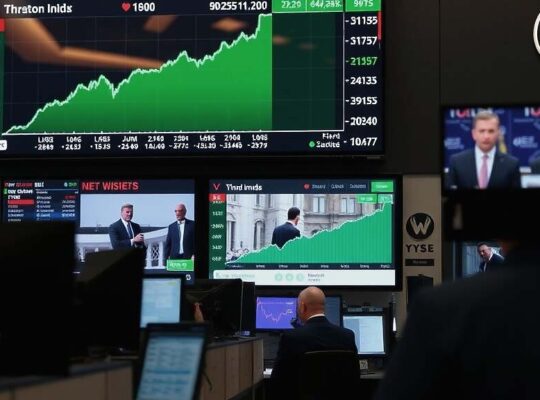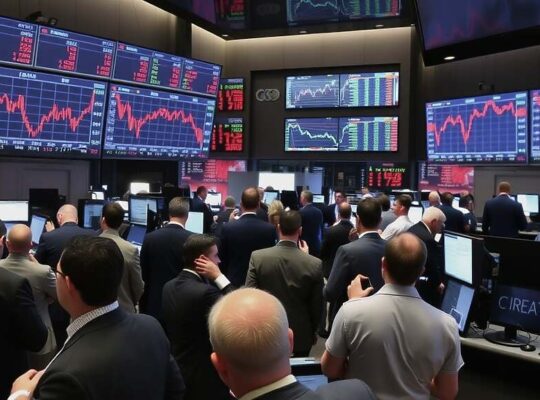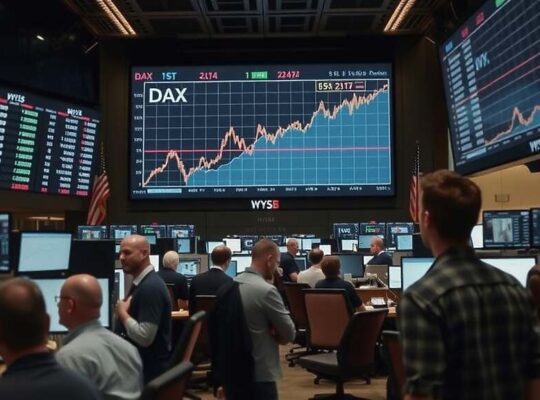European markets experienced a significant downturn Friday, with the German DAX index closing sharply lower amid heightened investor anxiety and a palpable lack of clarity surrounding the economic outlook. By midday, the DAX stood at approximately 23,760 points, representing a decrease of 2.1% from the previous day’s close. Continental, Volkswagen and Beiersdorf led the decline in share prices, while Deutsche Bank, Rheinmetall and Siemens Energy faced considerable losses.
Market analyst Andreas Lipkow attributed the volatility to a confluence of destabilizing factors, primarily the ongoing US government shutdown and the resurgence of trade tensions between the United States and China. The shutdown has effectively silenced crucial economic data releases, forcing investors to rely on incomplete information and fueling a sense of uncertainty. “Investors are flying blind ahead of the weekend, struggling to piece together a comprehensive picture of the US economy” Lipkow stated.
The potential for escalatory rhetoric over the weekend, particularly regarding US-China trade relations, is adding to the apprehensive atmosphere. Concerns are also mounting over the fragility of the US regional banking sector, triggering unsettling echoes of the 2023 Silicon Valley Bank collapse. The immediate question is whether the selling pressure observed earlier will persist through the US trading session.
The DAX’s performance reflects a broader trend of vulnerability amongst European markets, lacking inherent resilience to decouple from these global pressures. The euro experienced a slight uptick, trading at $1.1692, while the price of Brent crude oil notably declined to $60.35 a barrel, demonstrating a drop of 1.2% from the previous day’s closing value, potentially reflecting a broader risk-off sentiment amongst investors. The current situation underscores the precarious nature of the global financial landscape and the fragility of investor confidence in the face of lingering geopolitical and economic uncertainties.












